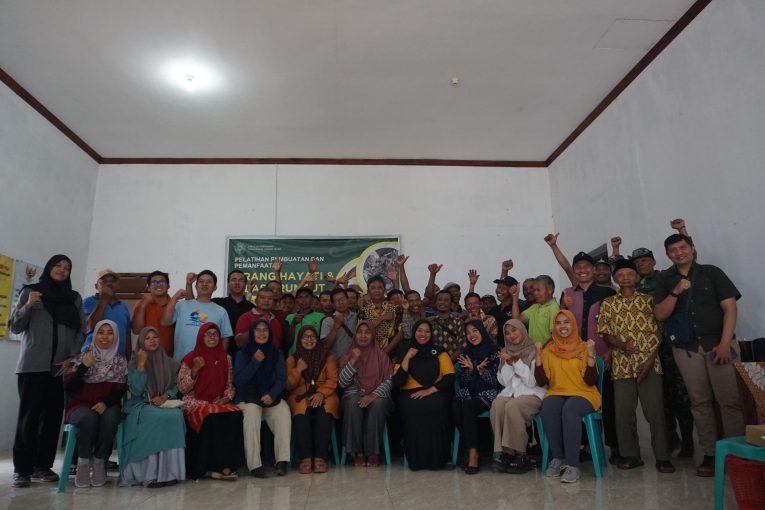
Saturday, July 20, 2024, the Faculty of Agriculture lecturers and students from Universitas Gadjah Mada carried out community service in Koripan Village, Matesih, Karanganyar, Central Java. A training on the production and utilization of biochar and silage was held at the Koripan Hamlet meeting hall, attended by approximately 40 participants, including the head of Matesih sub-district, Sugiharjo, SIP., MM., the head of the agricultural extension center of Matesih sub-district, the head of Koripan Hamlet RT, and resource persons for silage and biochar production training.
Lecturers from the Faculty of Agriculture UGM performed community service as a realization of one of the points of the Tri Dharma of Higher Education, which includes education, training, and community service. The UGM Faculty of Agriculture community service brought the idea for training on the production and utilization of biochar and silage. The training event was welcomed and opened by Sugiharjo, SIP., MM., the head of Matesih sub-district, and a welcome speech was also given by the head of the agricultural extension center of Matesih sub-district, who talked about the potential of Matesih sub-district. The event continued with a presentation on biochar production by Angga Prasetya, S.P., M.Sc., a lecturer from the Department of Soil Science UGM, and the next presentation on silage production for livestock feed delivered by Agung Dian Kharisma, S.Pd.Si., M. Biotech., Ph.D., a lecturer from the Department of Agricultural Microbiology.
Not only was it delivered theoretically, but the training on the production and utilization of biochar and silage also included field practice. The members of the farmer groups and the women of the Family Welfare Empowerment (PKK) were enthusiastic about making silage and applying biochar on the provided land. Community service from higher education institutions is highly anticipated by the community. Such forms of service greatly help us, and we hope that in the future, there will be more training events like this, whether from lecturers or students. This synergy is strong evidence towards achieving the goals of SDG 1: No Poverty, SDG 2: Zero Hunger, SDG 4: Quality Education, and SDG 17: Partnerships for the Goals.
Author: Faisal Nurul Fajri
